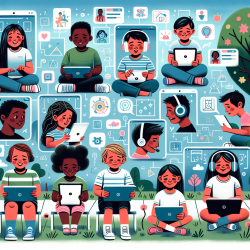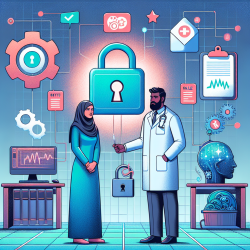The Future of Therapy is Here: Embracing Technology for Better Outcomes
In today's fast-paced world, technology is not just a convenience—it's a necessity. This is especially true in the realm of therapy for children, where online platforms are revolutionizing how services are delivered. For special education funding agencies, understanding the impact of technology on therapy is crucial for making informed decisions that benefit kids' mental health.
Why Online Therapy is a Game Changer
Online therapy, also known as teletherapy, offers numerous advantages that traditional face-to-face therapy cannot. Here's why it's a game changer:
- Accessibility: Children in remote or underserved areas can access therapy without the need to travel long distances.
- Flexibility: Sessions can be scheduled at convenient times, reducing the need for parents to rearrange their schedules.
- Consistency: Online platforms can ensure that therapy sessions are not missed due to inclement weather or other logistical challenges.
Data-Driven Decisions for Better Outcomes
At TinyEYE, we are committed to using data to drive our decisions and improve outcomes for children. Our online therapy services are backed by research and data analytics that help us tailor our approach to each child's unique needs. Here's how we do it:
- Individualized Plans: Data helps us create personalized therapy plans that address the specific challenges each child faces.
- Progress Tracking: We use data to monitor progress and adjust therapy plans as needed to ensure optimal outcomes.
- Evidence-Based Practices: Our therapy methods are grounded in the latest research, ensuring that children receive the most effective treatment available.
Technology Enhancing Kids' Mental Health
The integration of technology in therapy is not just about convenience; it's about enhancing kids' mental health in meaningful ways. Online therapy platforms like TinyEYE offer interactive tools and resources that engage children, making therapy a more enjoyable and effective experience. This approach not only supports mental health but also empowers children to take an active role in their therapy journey.
Empowering Parents and Educators
For parents and educators, understanding the benefits of online therapy is crucial. Technology empowers them to be active participants in the therapy process, providing them with the tools and information they need to support their children effectively. By embracing technology, parents and educators can collaborate more effectively with therapists, ensuring that children receive the comprehensive support they need.
Conclusion
The integration of technology in therapy is transforming the landscape of special education. For funding agencies, supporting online therapy initiatives is an investment in the future of children's mental health. By leveraging data-driven decisions and embracing technological advancements, we can create better outcomes for children, ensuring that every child has the opportunity to thrive.










